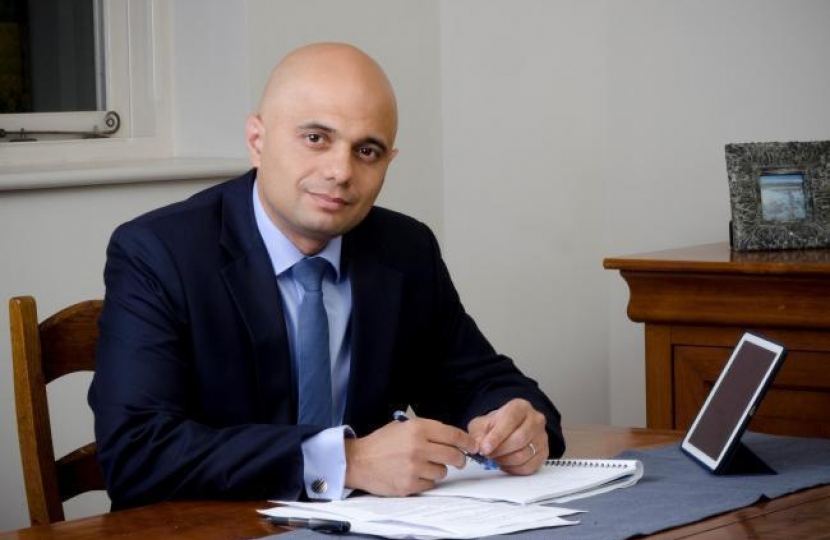
Pain and anguish. Hope and despair. I’ve spent my week watching footage shot on a thousand smartphones, expressing a hurt that has persisted for hundreds of years. The killing of George Floyd — in which a policeman knelt on his neck until he ceased to breathe — was abhorrent and has rightly provoked soul-searching in the UK as well as anger across the Atlantic.
Those scenes broke my heart because I have a deep and enduring affection for the United States. I spent much of my twenties in New York. For me, it was quite literally a land of freedom and opportunity, the place that gave me a shot at a career in finance when the City would not — in part, I think, because of my class and the colour of my skin.
Britain is not the United States. The City has come a long way since I was looking for my way in and our police have proved themselves more effective than most at changing in response to injustice. The murder of Stephen Lawrence and the adoption of the Macpherson report, to cite one example, brought about real progress in tackling racial prejudice and discrimination in police forces up and down the country.
That said, there is greater disproportionality in the number of black people in prisons here than in US jails, and while the abuse hurled at our officers is unacceptable, in some ways our police service still has a way to go.
My brother has served as a police officer for 27 years. One of my proudest moments as home secretary was speaking at his graduation from our country’s most senior command course. It wasn’t difficult to pick him out from the podium — aside from our matching haircuts, we Javid brothers were the only ethnic minorities in the room.
Nevertheless, when it comes to our country’s relationship with race, I’ve always been an optimist. Sometimes that has required a leap of faith — when joining my university’s Conservative Association I was painfully aware that the party hadn’t elected a single black or Asian MP since 1906 — but that faith has almost always turned out to be well placed. My successors in two of the four great offices of state have both been ethnic minority politicians, appointments made entirely on merit.
That progress hasn’t come about by accident; neither is it any cause for complacency. Ethnic minorities in Britain are still the victims of racial injustice and substantial disparities in opportunity. The government can and must do more to address racial inequalities in our society.
For starters, the Home Office has not implemented the process of root-and-branch cultural change necessary in the aftermath of Windrush. Like the Macpherson report, the lessons-learnt review that I ordered during my time as home secretary set out a clear plan of action for the government to implement. Published under my successor, it must be properly implemented to demonstrate that when we say, “Never again”, we mean it. I have every faith that Priti Patel will do so.
Last week’s review of whether black and minority ethnic groups are disproportionately dying from Covid-19 was a stark reminder that while we may be in the pandemic together, we do not share its risks equally. People of black, Caribbean and Asian ethnicity are up to twice as likely to lose their lives to the virus as their white counterparts. Two-thirds of the NHS and care staff who have lost their lives to the virus have been from minority backgrounds. It is imperative that we discover why, so the government can do more to protect them.
I believe that the race disparity audit initiated by Theresa May is crucial and it’s important that it continues its work. Yet there is little point in shining a light on racial injustices if that does not turn into an action plan to address them.
At its heart, the levelling-up agenda that I helped the prime minister put in place was about fairness. It recognised that while talent may be evenly distributed across our country, opportunity is not. That’s as much racial as it is geographical.
That’s why, as we enter a new chapter in our national story, we need a new agenda on race. As with all large-scale challenges, only the prime minister is capable of driving real change. Just as he has chosen to take personal control of the pandemic response and Brexit, he is able to bring the same energy and determination to fighting racial injustice and delivering equal opportunity.
The scenes from America have served as a valuable reminder that few things are more dangerous to race relations than politics dividing on racial lines. As the think tank British Future has shown, along with our Canadian counterparts, no other centre-right party in the world better reflects the diversity of their country through their candidates and cabinet. That’s something the Conservatives can be proud of.
However, we have much more to do. I make no apologies for laying the foundation for my party’s independent investigation into discrimination, including anti-Muslim hatred, during the leadership debate. We must never stand by when it comes to prejudice and discrimination of any kind.
I often say that we’re the most successful multiethnic democracy in the world. It’s one epithet I’m very proud of. However, we mustn’t pretend that as a country we don’t still have substantial obstacles to overcome, from integration to opportunity. There are still parts of society that are more concerned about the status quo than justice and humanity.
Racism wasn’t born on America’s streets. It can rear its ugly head anywhere. As we step into an uncertain decade, we need to set a new ambition for breaking down barriers in Britain too.
Sajid Javid is MP for Bromsgrove
You can read the article in The Times online here: https://www.thetimes.co.uk/article/sajid-javid-racism-is-a-challenge-boris-johnson-must-meet-head-on-2ft83ghcx
